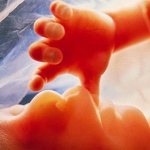Written by Kathy Clubb
13th Sept 2024
The once-solidly Catholic Pontifical Academy for Life has released yet another ambivalent document which offers a moral justification for assisted suicide and which could also be used to justify abortion. This follows years of problems, including ambiguous comments by its President, Archbishop Vincenzo Paglia on abortion and contraception as well as controversial documents which fail to clearly state the Church’s teaching on reproductive issues.
The most notable of these was a 2022 booklet, Etica Teologica Della Vita” which is a synthesis of a seminar sponsored by the academy in 2021.That document was highly controversial, receiving criticism from many quarters, including from the Australian Catholic Medical Association. In fact, it was largely due to contradictions contained in the booklet that FLI decided to publish its own book on contraception, Barren Beds Over All Tellus.
The latest offering from the Pontifical Academy for Life is an 80-page booklet on end-of-life issues which was made public on July 2. Published only in Italian, the booklet is entitled, Piccolo Lessico del Fine Vita, or Small Lexicon of the End of Life. The booklet is designed for Bishops, priests and healthcare professionals who need a concise reference for Catholic teaching on euthanasia and related issues.
The Lexicon provides the definitions of twenty-two terms found in end-of-life discussions, giving explanations in the context of both Catholic theology and science. Included are terms such as Advanced Care Directives, cremation, the ‘vegetative’ state, and organ donation along with palliative care issues such as pain management and deep sedation.
Much of the Lexicon reiterates sound Catholic teaching, such as when it warns that the legalisation of euthanasia has wider consequences for the role of doctors and patient care.
However, some disturbing comments are also found within its pages.
Archbishop Paglia wrote the introduction to the Lexicon, which is problematic for more reasons than have already been mentioned. Paglia is notorious for having commissioned a homo-erotic mural for his cathedral in which he appeared, being caressed by a naked man. That scandal has never been addressed by Pope Francis; rather Paglia was appointed to head the Pontifical Academy for Life years after the mural was made.
Another area of concern in the Lexicon is Advanced Care Directives. In Italy, these are known as DAT or AD, and the booklet provides a template for Italian patients to use. Stating of Directives that “their value cannot be understood in a merely preferential sense” (p.36), the booklet cites an Italian law which makes them legally binding, without mentioning that this law allows for euthanasia.
The law, 219/17, was designed to give patients maximum autonomy, penalising doctors who provide care despite a patient demanding otherwise and protecting a doctor from liability when he or she withdraws care in accordance with a patient’s wishes. The law has drawn fierce criticism from Catholic medical professionals who fear it does not protect their right to conscientious objection. This is a problem because the law grants to patients a right to request medically assisted suicide (within certain parameters) and the suspension of treatment.
Related to this is the Lexicon’s startling suggestion that basic patient care, such as antibiotics and food and hydration, may be considered as ‘aggressive therapies.’ This marks a departure from previous statements from the Pontifical Academy for Life as well as from standard palliative care practice, which has always viewed food and hydration as ‘ordinary’ and not ‘extraordinary’ care.
This new stance is justified by the claim that patients in vegetative states require food and hydration that is not ‘simple care’ as it must be specially prepared in laboratories. This contrasts with a 2007 declaration from the then-Congregation for the Doctrine of the Faith which stated that “a patient in a “permanent vegetative state” is a person with fundamental human dignity and must, therefore, receive ordinary and proportionate care which includes, in principle, the administration of water and food even by artificial means.” The CDF statement said that the only exception to this was when a patient would suffer “significant physical discomfort” due to not being able to assimilate food or hydration.
The imperative to provide basic care has remained the constant teaching of the Church. In his 1957 Address to an International Congress of Anesthesiologists, Pius XII said,
“But normally one is held to use only ordinary means — according to circumstances of persons, places, times, and culture — that is to say, means that do not involve any grave burden for oneself or another. A more strict obligation would be too burdensome for most men and would render the attainment of the higher, more important good too difficult. Life, health, all temporal activities, are in fact subordinated to spiritual ends. On the other hand, one is not forbidden to take more than the strictly necessary steps to preserve life and health, as long as he does not fail in some more serious duty.”
This approach was restated in the encyclical Evangelium Vitae, when Pope John Paul II quoted the CDF’s 1980 Declaration on Euthanasia, saying that it is licit to “refuse forms of treatment that would only secure a precarious and burdensome prolongation of life, so long as the normal care due to the sick person in similar cases is not interrupted.” (§65)
The new guidelines state that carers should “respect the will of the patient who refuses” food and water, forcing them to act against the Hippocratic Oath and their consciences by allowing their patient to die. This suggests a dangerous concession to the subjective demands of a vulnerable patient rather than adherence to the Catholic principles which should guide all moral actions. The Catholic Church has never approved of suicide in any form, placing it in the same category as murder. Thomas Aquinas wrote,
“It is altogether unlawful to kill oneself…..whoever takes his own life, sins against God, even as he who kills another’s slave, sins against that slave’s master, and as he who usurps to himself judgement of a matter not entrusted to him. For it belongs to God alone to pronounce a sentence of death and life.”
Death by starvation and/or dehydration is neither peaceful nor humane: it results in drying and cracking of the mouth, lips, nose and tongue; concentrated urine causing burning of the bladder; vomiting and dry-retching due to the lining of the stomach drying out; high fever; convulsions due to the brain drying out; organ failure and finally death.
One high profile case of such a death was that of Terri Schiavo, whose husband used the courts to stop her being kept alive by her parents. Terry died an excruciating death which took 13 days after she was denied food and hydration. Another case was that of a Massachusetts fire-fighter, Paul Brophy, who took eight days to die after being taken off basic care. In both of these cases, someone close to the victim made the decision to put them through an agonising death, on the basis that this was what the patient would have wanted.
Another more recent case, one that is not yet resolved, is that of 28-year-old Margot Naranjo. After an accident, Margot suffered a permanent disability, requiring ongoing care from her parents. Her parents, Catholics, hosted prayer meetings on social media, then shocked viewers by announcing that they were planning to withdraw Margot’s food and hydration. When the couple posted details of the funeral they had planned for Margot – while she was still alive – the many complaints led to intervention by the authorities and Margot was removed from her parent’s care.
At this stage, a Texan County court has thankfully ruled that Margot be kept alive but like the two cases mentioned above, Margot’s family believed that she did not want to be kept alive by so-called ‘burdensome’ measures. The new guidelines from the PAV only add weight to this kind of flawed thinking, making it easier for families to justify ending the life of a loved one for whom they do not wish to care or whose death would enrich them.
Missing from the PAV’s new booklet is an explicit declaration of the intrinsic value of all human life. It also fails to mention that the cases in which ordinary treatments such as food and hydration become burdensome or disproportionate are very rare.
Instead, it focuses on subjective criteria regarding the patient’s quality-of-life. Patients are invited to evaluate whether or not a proposed treatment is proportionate using such criteria as its cost and their relationships with others, an approach which could also be used to justify abortion. The PAV document makes the patient’s subjective evaluation absolute, saying:
“Even if the treatments were clinically appropriate, they might nevertheless be disproportionate if the sick person considered them too burdensome in his circumstances. Not to undertake or to suspend those treatments is, at this point, not only possible, but, as Pope Francis says, ‘dutiful’.” (p. 64).
As Professor Brian McCall of Catholic Family News pointed out, the same Vatican authorities who told Catholics they had a ‘moral duty’ to inject an experimental gene serum are now claiming that it may be licit to withhold antibiotics from the sick. The inconsistencies are glaring, as are the scandals surrounding Archbishop Paglia and his entire Academy. Catholic ethicists must not hesitate to make their objections to this state of affairs known. Along with priests, they must ensure that the faithful are well-formed in traditional teaching with regard to all the moral issues, presenting the truth with compassion and clarity.








